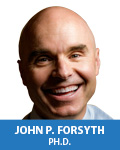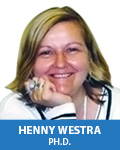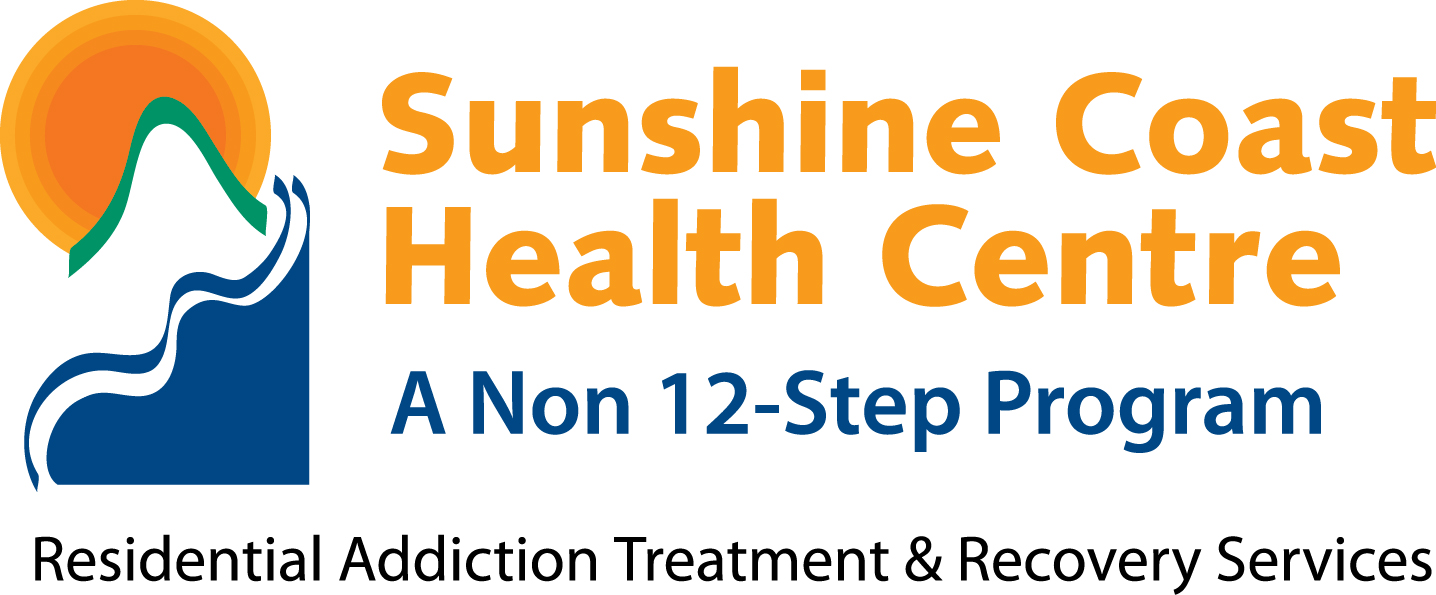The Canadian Mental Health Summit: Advanced Interventions and Strategies For Frontline Professionals
Co-Sponsored by Sunshine Coast Health Centre
Presented by
Margaret Wehrenberg, Psy.D.
and Jeff Riggenbach, Ph.D.
and Richard W. Sears, Psy.D., Ph.D. ABPP
and Jamie R. Forsyth,Ph.D.
and John P. Forsyth,Ph.D.
and Randy Paterson, Ph.D.
and Laurel Parnell Ph.D.
and Lisa Ferentz, LCSW, DAPA
and Henny Westra, Ph.D.
and Eboni Webb, Psy.D., HSP
and Robert A. Neimeyer, Ph.D.
and Reid Wilson, Ph.D.,
Wednesday, November 20, 2019 – Friday, November 22, 2019
|
Calgary, ab
Download Brochure (.PDF)
 Important Notice:
Important Notice:
Online registration is now CLOSED for this conference. You can arrive up to one hour early to register at the door.
Please note both of Dr. Parnell’s workshop times have been extended by 30 minutes, the new workshop times are 9:00am – 4:30pm.
Date & Location
Wednesday, November 20, 2019 – Friday, November 22, 2019
9:00am – 4:00pm
Best Western Premier Calgary Plaza Hotel & Conference Centre
1316 33 St NE, T2A 6B6, Calgary, AB
phone: 403.248.8888
website: www.calgaryplaza.com/
New Conference Format
- 12 Internationally Renown Experts
- 15 Full Day Workshops
- 15 Imperative Topics Relevant to Mental Health Professionals
A Letter from Jack Hirose
Dear Colleague,
I am pleased to announce that our annual Canadian Mental Health Summit Conference: Advanced Interventions and Strategies for Frontline Professionals will be hosted on November 20, 21 and 22, 2019 in the beautiful city of Calgary, Alberta. This conference will bring together 12 internationally renown experts for 15 full day workshop options.
During the past 20 years, we adopted a variety of conference formats. Last fall in Richmond, B.C., instead of offering morning keynote presentations followed by an afternoon workshop, we decided to offer a series of full day workshops to allow for more in-depth training. The feedback gathered from our conference attendees indicated that the new conference format was a refreshing change and a big success. The goal of our conference each year is to provide practical, useful and stimulating workshop choices that allow front line professionals to enhance their skill set and ultimately help their clients overcome a variety of mental health issues.
We are honoured to co-sponsor this annual event in partnership with the Sunshine Coast Health Centre. The Sunshine Coast Health Centre is one of the top drug rehab and alcohol treatment centres in BC and Canada. They are an innovative and effective program and have adopted a non 12 step approach to help men recover from addiction as well as trauma and PTSD. We are extremely grateful to have aligned with a organization that supports and values quality training for mental health professionals.
Over the past 20 years, our annual conference has trained over 10,000 frontline mental health professionals. Our world renown line up of guest presenters will address imperative topics such as: The 10 Best-Ever Anxiety and Depression Management Techniques, CBT Strategies: Core Skills and Competencies to Treat Your Most Challenging Clients!, Attachment Focused EMDR: Healing Developmental Deficits and Adults Abused as Children, Post-Traumatic Growth: Leading Clients on a Journey of Resiliency and Healing, Treatment and Management of Personality Disorders, Harnessing the Transformative Power of Mindful Acceptance (ACT), Failure to launch: Overcoming Delays in Independence, Advanced Motivational Interviewing, Mindfulness-Based CBT, Grief Therapy and Quest for Meaning, Dialectical Behaviour Skills Training (DBT) for Mental Health Professionals, Stopping the Noise: Practical Strategies to Help Clients with Panic, Generalized Anxiety, Phobias and OCD.
Our yearly conference is shaping up to be one of our best ever! Mark this event on calendar and I hope to see you at the conference in Calgary.
Regards,
Jack Hirose, MA
Conference Director
Conference Overview
Day One: Wednesday, November 20, 2019
Anxiety Management Techniques
Workshop #1 | Anxiety Management Techniques | Dr. Margaret Wehrenberg, Psy.D.
CBT Strategies
Workshop #2 | CBT Strategies: Core Skills and Competencies to Treat Your Most Challenging Clients! | Dr. Jeff Riggenbach, Ph.D., Diplomat with the Academy of Cognitive Therapy and President of the CBT Institute of Oklahoma
Mindfulness
Workshop #3 | Mindfulness-Based Cognitive Therapy | Dr. Richard Sears, Psy.D., Ph.D., Director of the Centre for Clinical Mindfulness and meditation. UC College of Medicine Department of Psychiatry and Clinical Neuroscience.
Acceptance and Commitment Therapy (ACT)
Workshop #4 | Harnessing the Transformative Power of Mindful Acceptance and Commitment (ACT) | Dr. John P. Forsyth, Ph.D., Anxiety Disorders Research Program at the University of Albany. Dr. Jamie R. Forsyth, Ph.D., clinical psychologist, clinical supervisor and trainer
Delays in Independence
Workshop #5 | Failure to Launch: Overcoming Delays in Independence | Dr. Randy Paterson, Ph.D., Founder of Vancouver’s Changeways Clinic and author of “How to be Miserable in Your Twenties: 40 Ways to Avoid Adulting.
Day Two: Thursday, November 21, 2019
EMDR
Workshop #6 | Attachment-Focused EMDR: Healing Developmental Deficits and Adults Abused as Children – Attachment-Focused EMDR (Part 1 of 2) | Dr. Laurel Parnell, Ph.D, One of the world’s leading experts on EMDR. Clinical psychologist and best selling author.
Trauma
Workshop #7 | Post-Traumatic Growth: Leading Clients on a Journey of Resiliency and Healing | Lisa Ferentz, LCSW-C, DAPA, Founder of Ferentz Institute, international presenter and consultant.
Depression
Workshop #8 | The 10 Best Ever Depression Management Strategies | Dr. Margaret Wehrenberg, Psy.D, Curriculum Development Director for Candeo’s online Depression and Anxiety Program
Personality Disorders
Workshop #9 | Treatment and Management of Personality Disorders: The Challenge of the Hidden Agenda | Dr. Jeff Riggenbach, Ph.D., Diplomat with the Academy of Cognitive Therapy and President of the CBT Institute of Oklahoma
Motivational Interviewing
Workshop #10 | Advanced Motivational Interviewing: Using Deliberate Practice To Develop Skills in M.I. (Part 1 of 2) | Dr. Henny Westra, Ph.D, Professor in the department of psychology at York University in Toronto. Is the author of the book “Motivational Interviewing in the Treatment of Anxiety” She has published over 80 peer reviewed articles and book chapters.
Trauma and Addiction
Evening Session | Problems of Meaning: Treating Trauma and Addiction | Geoffrey R. Thompson, Ph.D. is Program Director at the Sunshine Coast Health Centre, where he developed a meaning-centred therapy for clients suffering from addictions and co-occurring disorders.
Day Three: Friday, November 22, 2019
EMDR
Workshop #11 – Attachment-Focused EMDR: Healing Developmental Deficits and Adults Abused as Children – Working with Adults Abused as Children (Part 2 of 2) | Dr. Laurel Parnell, Ph.D, One of the world’s leading experts on EMDR. Clinical psychologist and best selling author.
Dialectical Behaviour Therapy (DBT)
Workshop #12 | Dialectical Behaviour Therapy Skills Training for Mental Health Professionals | Dr. Eboni Webb, Psy.D., Owner Kairos Mental Health Cooperative, advisor to the Dialectical Behaviour Therapy National Certification and Accreditation Association
Motivational Interviewing
Workshop #13 | Advanced Motivational Interviewing: Using Deliberate Practice To Develop Skills in M.I. (Part 2 of 2) | Dr. Henny Westra, Ph.D, Professor in the department of psychology at York University in Toronto. Is the author of the book “Motivational Interviewing in the Treatment of Anxiety” She has published over 80 peer reviewed articles and book chapters.
Grief
Workshop #14 | Grief Therapy and Quest for Meaning | Dr. Robert Neimeyer, Ph.D, is a professor in the Psychotherapy Research Area of the Department of Psychology, University of Memphis, where he also maintains an active clinical practice. He is the author of 25 books and 400 articles.
Anxieties, Phobias and OCD
Workshop #15 | Stopping the Noise: Practical Strategies to Help Clients with Panic, Generalized Anxiety, Phobias and OCD | Dr. Reid Wilson, Ph.D, is Adjunct Associate Professor of Psychiatry at the UNC School of Medicine. Founding Clinical Fellow of the Anxiety and Depression Association of America (ADAA) and Fellow of the Association for Behavioural and Cognitive Therapies.
Important, please read carefully
- Each workshop is a full day course from 9:00am – 4:00pm
- Space in each workshop is limited, please register early to reserve your seat
- Changes to participant info provided during registration, including workshop selection, may be subject to an admin fee
- Participants are permitted to change workshops on the day of the conference at no charge, subject to seating availability
- Seating availability will be determined after the session begins
- Seat sharing is not allowed, multi-day options are for one workshop participant
- Groups do not need to attend the same workshop to qualify for the group rate, must attend all 3 days
- Please read the complete terms and conditions here
Who Should Attend
Clinical Professionals: All mental health professionals including, but not limited to Clinical Counsellors, Psychologists, Psychotherapists, Social Workers, Nurses, Occupational Therapists, Hospice and Palliative Care Workers, Youth Workers, Mental Health Workers, Addiction Specialists, Marital & Family Therapists, Speech Language Pathologists, Vocational Rehabilitation Consultants, School Counsellors, Behaviour Specialists, Rehabilitation Consultants, Geriatric Specialists, and all professionals looking to enhance their therapeutic skills.
Day 1 – November 20, 2019
Workshop #1: The 10 Best-Ever Anxiety Management Techniques
Presented by
Margaret Wehrenberg, Psy.D.
9:00am - 4:00pm November 20, 2019
COURSE DESCRIPTION:
In The 10 Best-Ever Anxiety Management Techniques, Margaret Wehrenberg, Psy.D presents the most useful psychotherapeutic approaches to generalized anxiety, panic and social anxiety. Via discussion, practice in the seminar, and concise client examples in all age groups, you will learn methods to manage anxiety that work in every clinical population. Even experienced clinicians will come away with tools to help clients resolve their anxiety symptoms.
Drawing on the latest research for the neurobiological basis of anxiety to explain why psychotherapy is so effective, Dr. Wehrenberg demonstrates comprehensive techniques to stop rumination, eliminate panic and prepare people to participate in social environments without distress.
Among the 10 Best-Ever Anxiety Management Techniques are methods that manage the physiological aspects of anxiety: stress, the dread and agitation of generalized anxiety, panic attacks, and the nervous system-based blushing, sweating and shaking of social anxiety. You will get information about ruling out causes of anxiety and physical conditions that mimic anxiety.
Show more
You will be able to apply tools to eliminate the distressing cognitive features of anxiety, such as rumination, catastrophic thinking, and cognitive errors with tools such as “Contain Your Worry”, “Worry Well and Only Once” and “Knowing, not Showing Anger”. You will be able to identify and correct for the typical issues of procrastination and perfectionism as they appear when caused by generalized anxiety disorder. But also, you will be able to apply the neuroscience of memory reconsolidation as it affects and directs both desensitizing panic cues and the creation of effective social anxiety exposures.
Through case examples, description of methods that will include “Knowing, Not Showing Anger”, “Contain Your Worry in Time,” and 3 mindfulness practices to minimize distress. Dr. Wehrenberg will provide a look at the research that supports the efficacy of these treatment methods and give an opportunity to practice several of the methods, including 5 breathing techniques to manage anxiety, 2-minute relaxers, “Clear the Mind” of worry, the ‘Heart Lock-In’ from Heart math, and Emotional Freedom Technique, among others. This seminar is suited to any clinician who has clients with anxiety, and it will aid the newer therapist to be effective with anxious clients of every age as well as strengthen the skills of even the most experienced clinician.
COURSE OUTLINE:
- Describe neurobiological basis of anxiety and the implications for why and how psychotherapy works to use the brain to change the brain.
- Technique #1 Manage Intake – explore lifestyle contributions to anxiety and healthy habits to reduce anxiety
- Dealing with Stress That Creates Anxiety Disorders: 4 competencies to prevent or recover from stress damage and eliminate it for good!
- Fear Based Anxiety Disorders: Panic and Social Anxiety. Apply the panic reduction protocol “Prevent Panic” and the “3 Cs for Effective Exposure” to eliminate social anxiety.To include mindfulness techniques, interoceptive exposure, and eliminate panic triggers.
- Model effective use of diaphragmatic breathing techniques and relaxation methods that reduce both physical and mental tension.
- The basis of ruminative anxiety and how to eliminate worry, including the methods of technique #1 “Contain Your Worry.”
- Apply the most effective cognitive interventions to reduce persistent rumination (Erase the Worry Trace) and stop worrying over real or potential problems.
- Utilize cognitive therapy interventions with clients to manage perfectionism, procrastination and rigid approaches to problems.
- Explore the basis of phobias and basic approached to desensitize phobia, including health anxiety.
- Effectively enable socially anxious clients to face their fears and improve their participation in life, challenging false beliefs and successfully engaging in social environments.
COURSE OBJECTIVES:
- Describe neurobiological basis of anxiety and the implications for why and how psychotherapy works to use the brain to change the brain.
- The basis of ruminative anxiety and how to eliminate worry, including the methods of technique #1 “Contain Your Worry.”
- Dealing with Stress That Creates Anxiety Disorders: 4 competencies to prevent or recover from stress damage and eliminate it for good!
- Fear Based Anxiety Disorders: Panic and Social Anxiety. Apply the panic reduction protocol “Prevent Panic” and the “3 Cs for Effective Exposure” to eliminate social anxiety.To include mindfulness techniques, interoceptive exposure, and eliminate panic triggers.
- Model effective use of diaphragmatic breathing techniques and relaxation methods that reduce both physical and mental tension.
- Apply the most effective cognitive interventions to reduce persistent rumination (Erase the Worry Trace) and stop worrying over real or potential problems.
- Utilize cognitive therapy interventions with clients to manage perfectionism, procrastination and rigid approaches to problems.
- Effectively enable socially anxious clients to face their fears and improve their participation in life, challenging false beliefs and successfully engaging in social environments.

Margaret Wehrenberg, Psy.D., is a clinical psychologist, author, and international trainer. She is a practicing psychotherapist and coaches professionals for anxiety management. Margaret has been a trainer of therapists for 25 years, and she is a sought-after speaker for continuing…
→ Read more
More information: margaretwehrenberg.com
Workshop #2: CBT Strategies: Core Skills and Competencies to Treat Your Most Challenging Clients!
Presented by
Jeff Riggenbach, Ph.D.
9:00am - 4:00pm November 20, 2019
COURSE DESCRIPTION:
Cognitive Behavioural Therapy is the most empirically supported therapeutic approach for multiple psychiatric disorders, and is widely considered the “gold standard” treatment for a variety of issues. Most mental health professionals claim to do “some CBT,” but many clinicians in the trenches resort to a more “eclectic” approach and treatment often loses direction. Leave this 1-day intensive breakthrough course with international CBT expert Dr. Jeff Riggenbach with core competencies, transformed clinical skills, and an improved understanding of conceptualization based treatment that will ensure you never get stuck in therapy again.
You will be able to utilize concrete strategies for helping your clients who suffer from:
- Bipolar and depressive related disorders
- Anger
- Anxiety disorders
- Personality Disorders
Through case studies, interactive discussions, role-plays, and reproducible handouts, you will take away practical CBT strategies to use immediately with any client. Leave this conference armed with tools you can use in your very next session!
Show more
COURSE OBJECTIVES:
- Develop core competencies in CBT, including the therapeutic alliance, collaborative agenda setting, fostering behavioural and cognitive change, and giving client feedback.
- Understand the role of cognitive distortions in information processing and the unique processing present in specific symptom sets.
- Learn evidence based strategies for treating clinical conditions including depression, anxiety disorders, anger management, and personality disorders
- Utilize techniques from traditional CBT, meta-cognitive, and schema based approaches
- Demonstrate how case conceptualization drives effective treatment planning & improves therapy outcomes.
- Discuss case studies to increase understanding of specific cognitive models of depression, anxiety and anger and effective treatment strategies for each.

Jeff Riggenbach, Ph.D. is a best-selling and award winning author who has earned a reputation as an international expert in CBT and personality disorders. Over the past 20 years he has developed and overseen CBT-based treatment programs for Mood disorders,…
→ Read more
9:00am - 4:00pm November 20, 2019
COURSE DESCRIPTION:
Much has been written about mindfulness in recent decades, but clinicians are often left without concrete, practical skills to teach clients in acute distress. Applying the methods of an evidence-based intervention such as Mindfulness-Based Cognitive Therapy (MBCT), requires in-depth knowledge and personal experience. MBCT is an 8-session program first developed by Zindel Segal, Mark Williams, and John Teasdale, and has been shown to cut relapse rates for depression in half. It has been shown to be helpful for such issues as stress, anxiety, depression, chronic pain, and PTSD, and is also beneficial for clinicians themselves. Join mindfulness expert Dr. Richard Sears, author of Building Competence in MBCT, as he personally guides you through all of the techniques and principles of MBCT through lecture, discussion, and experiential exercises. This in-depth experiential workshop will foster skills and concepts that you can immediately apply in all of your clinical work.
Show more
COURSE OUTLINE:
Competencies of MBCT
Foundations of MBCT
- Mindfulness-Based Stress Reduction (MBSR)
- Original MBCT trials
- Evidence base for MBCT
- Neurological evidence
Principles
- Adaptation and expansion of CBT principles
- Decenter from strong and persistent negative thoughts
- Leading mindfulness exercises skillfully
- Mindful inquiry
MBCT Curriculum & Core Therapeutic Tasks
Awareness and Automatic Pilot
- Raisin exercise – distinguish thinking and feeling
- Body scan – foundation to build attention
- Mindfulness of daily activities
Living in Our Heads
- ABC model for linking thoughts and emotions
- Pleasant events calendar to foster attention to the positive
- Mindful breathing for stress and focus
Gather the Scattered Mind
- Mindful stretching for working with discomfort
- Mindful walking for dynamic mindfulness
- Unpleasant events calendar to relate differently to difficulty
- 3-Minute breathing space
Recognize Aversion
- Mindfulness of breath, body, sounds to deepen awareness
- Working with difficulties without struggle
Allow/Let Be
- Exposure to difficult thoughts and feelings to transform them
- Notice thoughts without getting lost in them
Thoughts are Not Facts
- Purposefully exposing to strong thoughts and feelings
- Techniques for working wisely with difficult thoughts
How Can I Best Take Care of Myself?
- Recognize relapse signatures to prevent future problems
- Develop self-care action plans
Maintaining and Extending New Learning
- Personalize mindfulness practices for individual clients
- Maintain momentum of positive gains
Clinical Issues – Advanced Strategies for Working with
Challenging Clients:
Adaptations of MBCT for:
- Depression
- Stress
- Anxiety
- Chronic Pain
- PTSD
- Substance Use Disorders
- Children & Adolescents
Limitations of the Research and Potential Risks
- Most research has been done in group settings
- Best when clients have the cognitive capacity to engage in the practices
- Adaptations must be made for acute conditions and special populations
- Mindfulness involves moving into experiences, which may cause a temporary exacerbation of symptoms
Evaluations
LEARNING OBJECTIVES:
1. Compile the underlying mechanisms that make mindfulness techniques effective for stress, depression, anxiety, trauma, pain, and addiction.
2. Breakdown the role of thoughts in perpetuating symptoms of stress, anxiety, and depression as it relates to ruminating thoughts and behaviours in clients.
3. Describe the brain changes associated with mindfulness practice to explain to clients the scientific effectiveness of practicing mindfulness.
4. Connect how mindfulness builds upon and refines the evidence-based principles of Cognitive-Behavioural Therapy (CBT).
5. Incorporate mindfulness practices into traditional CBT thought records to help alleviate clients of intrusive, obsessive compulsive thoughts.
6. Utilize specific mindfulness-based techniques to help clients disengage from the narrative of negative thoughts and emotions.
7. Organize the eight session structure used MBCT program in your own clinical setting.
8. Differentiate between the group process in MBCT vs. CBT to avoid clients’ cycles of struggling with distressing thoughts and feelings.
9. Practice guiding a client through a 3-minute mindfulness exercise to improve the consistency of conscious choices rather than automatic reactions when distressed.
10. Explore the use of decentering skills with a client, in a session, in the reduction of worry and ruminations.
11. Apply the three steps of the mindful inquiry process, after the mindfulness exercise is over, to help clients more quickly internalize the skills and attitudes that allows them let go of struggle and make conscious choices.
12. Adapt the MBCT curriculum to different client populations, including children, as it relates to treatment considerations.

Richards W. Sears, Psy.D., Ph.D., ABPP is a board certified clinical psychologist in Cincinnati, Ohio, where he runs a private practice and conducts regular MBCT groups for medical centres as well as for the community. He is director of the…
→ Read more
More information: www.psych-insights.com
Workshop #4: Harnessing the Transformative Power of Mindful Acceptance and Commitment (ACT)
Presented by
John P. Forsyth,Ph.D.
and Jamie R. Forsyth,Ph.D.
9:00am - 4:00pm November 20, 2019
COURSE DESCRIPTION:
Acceptance and mindfulness-based practices are rapidly making their way into mental health care, medicine, and society both to alleviate human suffering and nurture psychological health and wellness. This body of work also offers a fresh perceptive on psychological suffering and a set of powerful clinical strategies that support meaningful life changes. In this workshop, we will learn about one particular approach and set of practices based on Acceptance and Commitment Therapy (or ACT, said as one word).
ACT is a newer third-generation evidence-based behaviour therapy that balances mindfulness and acceptance processes with commitment and behaviour change processes to (a) weaken the unhelpful influence of thoughts and emotional avoidance in guiding actions, while (b) promoting greater experiential and psychological flexibility in the service of (c) valued ends. It is both a form of therapy and an approach to living well, with evidence showing that it is useful for many forms of psychological and emotional suffering. In short, ACT teaches clients how to be with their hurts and do what works – to live well, richly, and meaningfully, without first having to defeat sources of emotional and psychological pain.
Show more

John P. Forsyth, Ph.D. is an internationally recognized author, speaker, researcher, and trainer in the use of Acceptance and Commitment Therapy (ACT) and practices that cultivate mindfulness, loving kindness, and compassion. For over 20 years, his work has focused on…
→ Read more
More information: https://www.drjohnforsyth.com/

Jamie R. Forsyth, Ph.D. is an active and gifted clinician and clinical supervisor, with extensive expertise in the use and application of Acceptance and Commitment Therapy (ACT) with severe forms mental illness (e.g., psychosis and personality disorders) and forms of…
→ Read more
More information: https://www.drjohnforsyth.com/
Workshop #5: Failure to Launch: Overcoming Delays in Independence
Presented by
Randy Paterson, Ph.D.
9:00am - 4:00pm November 20, 2019
COURSE DESCRIPTION:
Parents who formerly worried about “empty nest syndrome” might today worry more that their children will never leave home. In countries around the world, increasing numbers of young people – particularly males – are having difficulty navigating the transition from adolescence to adult self-sufficiency. They remain isolated, avoidant, jobless or underemployed, and a-motivational – often staying in their childhood home into their 30s. The causes are numerous: economics, internet connectivity, changes in parenting, features of the educational system, and more. Yet the issue is infrequently studied, perhaps because it does not fit neatly into a diagnostic category. Despite this, clinicians are increasingly seeing these individuals – or their parents – in therapy. At Change ways Clinic in Vancouver, Dr Randy Paterson has been working with failure-to-launch cases for over 20 years. In this one day workshop, he reviews the nature of the problem, the factors that seem to contribute, and a wide variety of interventions drawn from cognitive therapy, behavioural activation approaches, and attachment theory. Whether you work with these young people directly, or see the parents struggling with a too-long-occupied nest, this program will provide you with perspectives and techniques to help.
Show more
COURSE OBJECTIVES:
- Learn to identify this non-diagnostic clinic population, and to distinguish normal dependency from an interruption in development.
- Develop an awareness of the multiple factors likely to be operating in any given case.
- Know strategies for siding with the client and increasing motivation.
- Understand when to hold back and when to push progress.
- Develop an array of intervention strategies that can be tailored to the individual.
- Learn how to incorporate family in the therapy – even when the goal is independence.
- Increase awareness of how and why families inadvertently sabotage progress.

Randy Paterson, Ph.D, R.Psych. is a psychologist and the founding director of Changeways Clinic, a private psychotherapy service in Vancouver BC. He is the author of How to be Miserable: 40 Strategies You Already Use, The Assertiveness Workbook, Your Depression…
→ Read more
More information: www.randypaterson.com
Day 2 – November 21, 2019
Workshop #6: Attachment-Focused EMDR: Healing Developmental Deficits and Adults Abused as Children - Attachment-Focused EMDR (Part 1 of 2)
Presented by
Laurel Parnell Ph.D.
9:00am - 4:30pm November 21, 2019
COURSE DESCRIPTION:
Over the last two decades, EMDR has emerged as one of the most powerful clinical tools available to trauma therapists. In this workshop, Dr. Laurel Parnell will teach you how to integrate an attachment focus into EMDR and to use EMDR in combination with a variety of complementary techniques.
Much of this workshop is built around videos of actual clinical sessions conducted by Dr. Parnell. These videos bring the training to life: participants can see, not just hear about, how the ideas and procedures they’re learning are used with real patients in the real world. Dr. Parnell is an EMDRIA Approved Basic Training Provider as well as an experienced and highly skilled therapist. Her workshops are as enjoyable as they are instructive, and consistently receive rave reviews.
Show more
LEARNING OBJECTIVES (Day 1 & 2):
Upon completion of this workshop, attendees will be better able to:
- Describe the five basic principles of Attachment‐focused EMDR and how they can be integrated into the treatment of relational trauma.
- Discuss how an attachment‐focus can be integrated into the history taking and preparation phases of EMDR
- List the four most commonly used resources to install as well as other useful resources and how they can be integrated into EMDR with an attachment focus
- Repair early developmental stages using imagination and bilateral stimulation.
- Name three techniques for working with dissociation
- Describe four ways to integrate an attachment‐focus into the desensitization, installation, closure and reevaluation phases of EMDR.
- Utilize at least four interweave strategies
- Describe how and why to adapt the standard EMDR protocol for clients with attachment wounds.
DAY 1 COURSE OUTLINE:
Attachment-Focused EMDR: Basic Principles, Video Taped Demonstrations and “Resource Tapping”
In this part of the workshop you will learn to use the five basic principles of attachment-focused EMDR. For many traumatized patients, attachment repair is a critically important component of successful treatment – a component that can be accomplished effectively and efficiently by using EMDR within a positive therapeutic alliance. Videotaped demonstrations, discussion, and practice will help you define the differences between attachment-focused EMDR and a more traditional approach. In addition, Dr. Parnell will emphasize how the technique called “Resource Tapping” can be used to repair developmental deficits as well as to help prepare clients for trauma processing work. You will watch Dr. Parnell use Resource Tapping, will have a chance to practice the technique yourself, and will learn how to integrate it with EMDR.
While no prior EMDR training is required to attend, eligibility for EMDRIA credits is restricted to those who have completed an EMDRIA-Approved basic EMDR training. This workshop is not considered an EMDR Basic Training course. Completion of EMDR basic training is recommended and important to the comprehension of this workshop’s content. Those attendees with only partial training are not eligible to receive EMDRIA credits. If you are not already EMDR trained, it is recommended that you complete the full EMDR basic training and have training and experience in working with EMDR and this population before using this material.
This workshop is not considered an EMDR Basic Training Course. Completion of EMDR basic training is recommended and important to the comprehension of this workshop’s content.

Laurel Parnell Ph.D. is one of the world’s leading experts on EMDR. A clinical psychologist, she has trained thousands in EMDR in her international workshops. Dr. Parnell is the author of Tapping In: A Step-by-Step Guide to Activating Your Healing…
→ Read more
More information: www.emdrinfo.com
Workshop #7: Post-Traumatic Growth: Leading Clients on a Journey of Resiliency and Healing
Presented by
Lisa Ferentz, LCSW, DAPA
9:00am - 4:00pm November 21, 2019
COURSE DESCRIPTION:
Become empowered as a trauma clinician! Learn from expert trauma clinician Lisa Ferentz how to shine a spotlight on your clients’ resiliency and creativity – while planting the seeds of hope and Post-Traumatic Growth even in the earliest stages of therapy! When we work with traumatized clients we often feel compelled to stay focused on the inevitable byproducts of PTSD. As we look for the ways in which clients have been adversely affected by their trauma, it can inadvertently narrow our sense of who they are, and solidify their identities as “damaged” or “broken.” Although helping clients to reconnect with and process their pain and grief is important, this workshop takes you further. You will learn respectful and powerful ways to weave the concepts of Post-Traumatic Growth into the treatment process. Using moving and inspiring case examples and videos made by clients we will identify the tangible markers of post-traumatic growth including:
• a new way of relating to others
• the capacity to believe in new possibilities
• the rediscovery of personal strengths
• a newfound appreciation for life
Participants will have many opportunities to practice creative strategies including: somatic resourcing; journaling; drawing; two –handed writing; and guided imagery and visualizations all designed to install and strengthen hope, growth, and healing in clients and therapists alike.
Show more
COURSE OUTLINE:
- Process the Impact of Trauma
- Assess for Client Resiliency
- The Power of Positive Self-Talk
- Move Beyond a Trauma Identity
- Explore the Manifestations of Post Traumatic Growth
- Move Beyond the Traumatized Self
- Help Clients Pay it Forward
- Build on the Seeds of Traumatic Growth

Lisa Ferentz, LCSW, DAPA, is a recognized expert in the strengths based, de-pathologized treatment of trauma and self-harm and has been in private practice since 1984. She presents workshops and keynote addresses nationally and internationally, and is a clinical consultant to practitioners and mental health agencies in the United…
→ Read more
More information: www.theferentzinstitute.com
Workshop #8: The 10 Best-Ever Depression Management Strategies
Presented by
Margaret Wehrenberg, Psy.D.
9:00am - 4:00pm November 21, 2019
COURSE DESCRIPTION:
Depression is painful. Ruminating thoughts, lethargy, and increasing alienation from others create a negative internal and external environment. Those symptoms actively interfere with carrying out basic demands of daily life. While depression is one of the most common mental health disorders, there are different causes. Treatment options run a gamut that includes new technologies to directly affect brain activity, advances in stress management, improved tools to relieve the impact of childhood trauma and focus on developing resilience.
How does a therapist know where to get started in the treatment? In this seminar, identifying four different kinds of depression, you will master 10 strategies to jump start therapy and provide immediate relief of symptoms. You will be able to set the stage for longer term recovery.
Show more
COURSE OBJECTIVES:
- Immediately intervene on the specific type of depression
- Improve motivation and mobilize energy in depressed clients
- Change negative cognitive patterns to energize action
- Demonstrate the impact of neural networks and how to break out of negative neural networks that keep depression in place
- Utilize strategies from positive psychology and mindfulness to develop positive attitudes and cognitions
- Increase clients’ abilities to formulate new options for problems by replacing the narrowing cognitive themes of worthlessness and inadequacy
COURSE OUTLINE:
- A look at the interaction between neurochemistry and cognition function and lifestyle to explore the 4 types of depression. A specific look at how neural networking affects the development and recovery from depression.
- Identify triggers and respond differently to them. The underpinnings of depression as seen in four kinds of depression (endogenous, situation, PTSD and the outcome of early life adversity)
- Techniques that energize the lethargic mind and body of the depressed client. Identify and cool down burnout, including a look at work addiction.
- Ending isolation, balancing life activities, and preventing destructive behaviour.
- Broadening the perspective of the depressed mind and learning to live more fully. These techniques will focus on new ways to open the mind to possibility and will look at building positive circuitry in the brain that will enhance the long term recovery of depressed clients.
Workshop #9: Treatment and Management of Personality Disorders: The Challenge of a Hidden Agenda
Presented by
Jeff Riggenbach, Ph.D.
9:00am - 4:00pm November 21, 2019
COURSE DESCRIPTION:
Individuals with personality disorders have long been considered the most challenging clients presenting in the clinical setting. Many patients lack motivation, most begin with poor insight, and some have such deeply engrained dysfunctional beliefs, unhealthy coping skills, and destructive behavioural patterns that continue to frustrate providers, family members, and consumers alike. Many professionals even continue to view them as untreatable.
However, there is hope. Emerging research suggests this is simply not the case. DBT, CBT, and Schema Therapy have paved the way in pioneering new attitudes and outcomes related to treating these conditions.
Join leading exert in the field of personality dysfunction Dr. Jeff Riggenbach for this enjoyable training chock full of the latest research, techniques, and practical strategies. This powerful workshop will give you a new ability to help struggling individuals deal with issues related to self-injurious behaviours, multiple suicide attempts, frequently hurt feelings, intense and unpredictable mood swings, substance use, angry outbursts, toxic relationships and other problems that impair their ability to function in society. Leave this day long training with an integrated DBT/CBT /Schema Informed approach to treating these cases and giving clients with even the most complex needs a life worth living.
Show more
COURSE OBJECTIVES:
- Master the essential characteristics of each of the personality disorders in DSM 5
- Assess the treat ability and prognosis of each disorder
- Evaluate the efficacy of various treatment methods including CBT, DBT, and Schema Therapy
- Learn Practical Application skills for management and treatment of each disorder
- Understand the 8 motivations for self-injurious behaviours and interventions for each
- Acquire case conceptualization skills useful for individualizing treatment planning and driving effective treatment
- Learn to actually like your Personality Disordered Patients! (or at least develop more frustration tolerance and increased empathy to work with them).
COURSE OUTLINE:
- Intro/The Treatment Model
- Personality Disorders in General/ Cluster A Disorders
- Schizotypal PD
- Schizoid PD
- Cluster C Disorders
- Obsessive Compulsive PD
- Avoidant PD
- Dependant PD
- Non Borderline Cluster B Disorders
- Histrionic PD
- Antisocial PD
- Narcissistic PD
- Borderline Personality Disorder: Assessment & Diagnosis
- Borderline Personality Disorder: DBT Treatment
- Borderline Personality Disorder: CBT/Schema Based Treatment
- Relapse Prevention/ Q&A
Workshop #10: Advanced Motivational Interviewing: Using Deliberate Practice To Develop Skills in M.I. (Part 1 of 2)
Presented by
Henny Westra, Ph.D.
9:00am - 4:00pm November 21, 2019
COURSE DESCRIPTION:
Motivational Interviewing (MI) is an empirically supported treatment that has been shown to enhance engagement and outcomes (especially long-term outcomes) for numerous clinical problems. It is a brief, client-centered therapy aimed at understanding and resolving ambivalence to change. MI has been shown to be effective in the treatment of addictions and numerous other health and mental health problems. This workshop will show you how to integrate MI techniques into your practice so you can help clients/patients identify the road-blocks that keep them stuck and enhance their motivation for change.
Prepare to roll up your sleeves and work as this workshop is highly interactive. This novel program has recently been reconstructed to be consistent with the latest training innovation in our field, namely the concept of “Deliberate Practice”. Deliberate Practice is the method used to train everyone from musicians, to athletes, to surgeons and it is now being applied to psychotherapy training. It involves the use of repeated feedback to actual specific scenarios and simulations in order shape and improve trainee responding. You will learn through involvement in a variety of engaging exercises & will grow in your skills as you get feedback about how to respond to those often complex and difficult scenarios. Scenarios include ambivalence, resistance, and even client hostility/anger across a wide variety of clinical domains (anxiety, eating disorder, addictions, health behaviours, etc.). Emphasis is placed on using videotape and other exercises to slow down and break down the complex process between client and therapist to help you identify moment-to-moment markers of ambivalence and resistance and then brainstorm effective responses to enhance client engagement. Emphasis is also placed on managing your own emotional reactions in these challenging encounters. You will also have the chance to apply and extend your learning to manage specific scenarios and client resistance statements you have encountered in your own clinical work and unique context.
Show more
We have even subjected this newly constructed workshop using deliberate practice methods to scientific scrutiny in order to assess (rather than assume) its actual training value. In a recent study, participants showed large increases in empathy and in MI-consistent responding to video vignettes of ambivalent, resistant, and critical clients from pre to post-workshop. They also showed improvements in their emotional reactions to difficult clients, including feeling more positive, less afraid, and less uncertain about how to respond to challenging resistant clients. Their overall satisfaction with the workshop was extremely high.
COURSE OBJECTIVES (Day 1 & 2):
- To train your ears to identify key motivational markers in the process of therapy (ambivalence, change talk, resistance, hostility);
- To learn key skills in responding to motivational markers in order to move productively to resolving ambivalence and enhancing commitment to change;
- To cultivate empathic understanding and use it to enhance intrinsic motivation;
- To develop the key attitude (“MI Spirit”) necessary to ‘roll with resistance’;
- To learn to move flexibly with clients to blend more supportive and more directive clinical styles
DAY 1 MORNING COURSE OUTLINE:
- Opening Exercises
- Brief Didactic: What is MI, The Importance of Ambivalence & Resistance, This Stuff Works
- Getting a Feel for MI Spirit – Identifying Good & Poor Illustrations of MI
DAY 1 AFTERNOON COURSE OUTLINE:
- Identifying Ambivalence & Resistance
- Right or Wrong? Analyzing video to identify more and less effective responses
- Responding to motivational process markers (One Timers & Evolving Conversations)

Henny Westra, Ph.D. is Professor in the Department of Psychology at York University in Toronto. Prior to this she was the Clinical Director of the Anxiety and Affective Disorders Service at the London Health Sciences Centre. She has published over 80…
→ Read more
Evening Session: Problems of Meaning: Treating Trauma and Addiction
Presented by
Geoffrey R. Thompson, Ph.D.
6:00pm - 8:00pm November 21, 2019
The evening session is open to all conference attendees and the general public at no cost.
COURSE DESCRIPTION:
According to research, about half of those who suffer from trauma also suffer from addiction, and about half of those who suffer from addiction also suffer from trauma. This presentation describes a meaning-centred therapy (MCT) for trauma and addiction. While MCT includes psychiatric, medical, and body therapies, it puts a special focus on helping clients make sense of their struggles and find ways to live a fulfilling life despite biological and environmental limitations.
Dr. Thompson’s talk invites the audience to look more deeply at those suffering from trauma and addiction—not so much as clinical cases, but as suffering human beings who experience life as empty and insignificant. The solution to their suffering is not merely to reduce harm or learn new coping skills; it’s to pursue personally meaningful lives.
COURSE OBJECTIVES:
- Appreciate why meaning-making and meaning-seeking are fundamental human motivations
- Understand how a meaning-centred model integrates mainstream treatments for treating trauma and addiction
- Learn key principles of a meaning-centred approach
- Apply strategies for helping clients pursue personal meaning

Geoffrey R. Thompson, Ph.D. is Program Director at the Sunshine Coast Health Centre, where he developed a meaning-centred therapy for clients suffering from addictions and co-occurring disorders. He has published journal articles, chapters, and books on addiction, including co-editing The…
→ Read more
Day 3 – November 22, 2019
Workshop #11: Attachment-Focused EMDR: Healing Developmental Deficits and Adults Abused as Children - Working with Adults Abused as Children (Part 2 of 2, Part 2 will be built on the content provided in Part 1)
Presented by
Laurel Parnell Ph.D.
9:00am - 4:30pm November 22, 2019
COURSE DESCRIPTION:
Over the last two decades, EMDR has emerged as one of the most powerful clinical tools available to trauma therapists. In this workshop, Dr. Laurel Parnell will teach you how to integrate an attachment focus into EMDR and to use EMDR in combination with a variety of complementary techniques.
Much of this workshop is built around videos of actual clinical sessions conducted by Dr. Parnell. These videos bring the training to life: participants can see, not just hear about, how the ideas and procedures they’re learning are used with real patients in the real world. Dr. Parnell is an EMDRIA Approved Basic Training Provider as well as an experienced and highly skilled therapist. Her workshops are as enjoyable as they are instructive, and consistently receive rave reviews.
Show more
COURSE OBJECTIVES ( Day 1 & 2):
Upon completion of this workshop, attendees will be better able to:
- Describe the five basic principles of Attachment‐focused EMDR and how they can be integrated into the treatment of relational trauma.
- Discuss how an attachment‐focus can be integrated into the history taking and preparation phases of EMDR
- List the four most commonly used resources to install as well as other useful resources and how they can be integrated into EMDR with an attachment focus
- Repair early developmental stages using imagination and bilateral stimulation.
- Name three techniques for working with dissociation
- Describe four ways to integrate an attachment‐focus into the desensitization, installation, closure and reevaluation phases of EMDR.
- Utilize at least four interweave strategies
- Describe how and why to adapt the standard EMDR protocol for clients with attachment wounds.
DAY 2 COURSE OUTLINE (Day 2 will be built on the content provided on Day 1):
Attachment-Focused EMDR: Working with Adults Abused as Children
Dr. Parnell will present standard EMDR protocols in addition to modified protocols to work effectively with this very challenging population. Victims of early abuse may easily become distressed, dissociated, or avoidant. EMDR therapists may need a specific and advanced understanding of the EMDR method, as well as additional skills, to work with them successfully. Topics addressed during the day will include: how to modify standard EMDR procedural steps with patients abused as children when necessary; developing appropriate targets; recognizing and dealing with blocked processing; using interweave strategies, working with abreactions, dissociation and memory chaining; and much, much more. Participants will leave with an array of new insights, ideas, perspectives, and techniques that will help them be more effective with victims of childhood abuse.
While no prior EMDR training is required to attend, eligibility for EMDRIA credits is restricted to those who have completed an EMDRIA-Approved basic EMDR training. This workshop is not considered an EMDR Basic Training course. Completion of EMDR basic training is recommended and important to the comprehension of this workshop’s content. Those attendees with only partial training are not eligible to receive EMDRIA credits. If you are not already EMDR trained, it is recommended that you complete the full EMDR basic training and have training and experience in working with EMDR and this population before using this material.
This workshop is not considered an EMDR Basic Training Course. Completion of EMDR basic training is recommended and important to the comprehension of this workshop’s content.
Workshop #12: Dialectical Behaviour Therapy Skills Training for Mental Health Professionals
Presented by
Eboni Webb, Psy.D., HSP
9:00am - 4:00pm November 22, 2019
COURSE DESCRIPTION:
Dialectical Behaviour Therapy (DBT) is a highly effective form of treatment for clients with Borderline Personality Disorder (BPD). However, many of these individuals have rarely developed life skills to build a proactive and responsive life versus a defensive and reactive one. Dr. Eboni Webb will introduce a holistic approach to treatment and will expand on key concepts including skills acquisition, daily practice, and generalization. These skills are critical for our clients to develop an effective interdependent adult life. Dr. Webb will provide a brief discussion of DBT and its relationship to the Biosocial model, the neurological impact of trauma on the developing brain and how to address specific diagnoses via the skills. She will discuss the importance of integrating DBT skills at the earliest point of treatment and utilizing skills as a foundation for life.
Show more
LEARNING OBJECTIVES:
- Learn each standard DBT skills module and two supplemental modules.
- Learn creative and innovative techniques to keep client’s engaged in today’s technology-centered world.
- Explore the different modes of skills groups to set up the most effective program for your practice.
- Set up skills group treatment expectations and behavioural contracts.
COURSE OUTLINE:
Neurobiological Building Blocks
- Why DBT skills?
- Trauma and Development
- The benefit of top-down and bottom-up process learning
Creating the Learning Container
- Importance of skills as a form of self-advocacy and consultation
- Setting up a group
- Establishing safety
- Making the environment conducive for learning
The Foundational Skills: Mindfulness & Dialectics
- Dialectical skills framework
- States of Mind
- WHAT skills
- HOW skills
Naming to Tame: Emotion Regulation
- How emotions work in the body
- 10 Universal emotions
- Emotion action decision tree
- Opposite action
- Caring for the body
- Resourcing the body with positive experiences and building mastery
Thriving in a Crisis: Distress Tolerance & Self-Compassion
- Grounding: Self-Soothe
- Skillful Distractions: ACCEPTS
- Crisis Integration: IMPROVE
- Pros and Cons
- Radical Acceptance
- Letting go of toxic shame in a crisis: Self-Compassion
Connection in Community: Interpersonal Effectiveness
- Wired for connection
- FAST skills
- GIVE skills
- Validation (Self & Others)
- Prioritizing Self and Others
- DEARMAN

Eboni Webb, PsyD, HSP, earned her Doctorate in Clinical Psychology from the Minnesota School of Professional Psychology (MSPP). She began her clinical work as assistant clinical director and program director at Mental Health Systems, PC (MHS), one of the largest providers…
→ Read more
Workshop #13: Advanced Motivational Interviewing: Using Deliberate Practice To Develop Skills in M.I. (Part 2 will be built on the content provided during Part 1)
Presented by
Henny Westra, Ph.D.
9:00am - 4:00pm November 22, 2019
COURSE DESCRIPTION:
Motivational Interviewing (MI) is an empirically supported treatment that has been shown to enhance engagement and outcomes (especially long-term outcomes) for numerous clinical problems. It is a brief, client-centered therapy aimed at understanding and resolving ambivalence to change. MI has been shown to be effective in the treatment of addictions and numerous other health and mental health problems. This workshop will show you how to integrate MI techniques into your practice so you can help clients/patients identify the road-blocks that keep them stuck and enhance their motivation for change.
Prepare to roll up your sleeves and work as this workshop is highly interactive. This novel program has recently been reconstructed to be consistent with the latest training innovation in our field, namely the concept of “Deliberate Practice”. Deliberate Practice is the method used to train everyone from musicians, to athletes, to surgeons and it is now being applied to psychotherapy training. It involves the use of repeated feedback to actual specific scenarios and simulations in order shape and improve trainee responding. You will learn through involvement in a variety of engaging exercises & will grow in your skills as you get feedback about how to respond to those often complex and difficult scenarios. Scenarios include ambivalence, resistance, and even client hostility/anger across a wide variety of clinical domains (anxiety, eating disorder, addictions, health behaviours, etc.). Emphasis is placed on using videotape and other exercises to slow down and break down the complex process between client and therapist to help you identify moment-to-moment markers of ambivalence and resistance and then brainstorm effective responses to enhance client engagement. Emphasis is also placed on managing your own emotional reactions in these challenging encounters. You will also have the chance to apply and extend your learning to manage specific scenarios and client resistance statements you have encountered in your own clinical work and unique context.
Show more
We have even subjected this newly constructed workshop using deliberate practice methods to scientific scrutiny in order to assess (rather than assume) its actual training value. In a recent study, participants showed large increases in empathy and in MI-consistent responding to video vignettes of ambivalent, resistant, and critical clients from pre to post-workshop. They also showed improvements in their emotional reactions to difficult clients, including feeling more positive, less afraid, and less uncertain about how to respond to challenging resistant clients. Their overall satisfaction with the workshop was extremely high.
LEARNING OBJECTIVES (Day 2 will be built on the content provided during Day 1):
- To train your ears to identify key motivational markers in the process of therapy (ambivalence, change talk, resistance, hostility);
- To learn key skills in responding to motivational markers in order to move productively to resolving ambivalence and enhancing commitment to change;
- To cultivate empathic understanding and use it to enhance intrinsic motivation;
- To develop the key attitude (“MI Spirit”) necessary to ‘roll with resistance’;
- To learn to move flexibly with clients to blend more supportive and more directive clinical styles
DAY 2 MORNING COURSE OUTLINE (Day 2 will be built on the content provided during Day 1):
- Rolling with Resistance: More Practice
- Building Therapists Resilience: Dealing with hostility, criticism & reactivity to angry clients
DAY 2 AFTERNOON COURSE OUTLINE:
- Speeding things up
- Extended practice
Workshop #14: Loss, Grief and the Quest for Meaning
Presented by
Robert A. Neimeyer, Ph.D.
9:00am - 4:00pm November 22, 2019
COURSE DESCRIPTION:
As contemporary models of bereavement have become more nuanced and empirically informed, so too have the practices available to grief counsellors and therapists.
This 1-day workshop offers in-depth training in several of these techniques, nesting them both within the therapy relationship and in the context of current theories and research that provide flexible frameworks for intervention.
Making extensive use of actual clinical videos as well as how-to instruction in the use of numerous therapeutic tools, we will discuss and practice several methods for helping clients integrate the reality of the loss into the ongoing story of their lives, while also reconstructing their continuing bond to their loved one.
Beginning with a discussion of the power of presence as a fundamental dimension of the therapeutic “holding environment,” we will consider how we can quickly assess our clients’ needs, particularly when they struggle with complicated, prolonged grief symptomatology. We will then discuss how to foster a safe relational container for a healing “re-telling” of the loss experience, anchoring such work in both contemporary meaning reconstruction and dual process models and related research.
Drawing on clinical videos of clients contending with losses through cancer, sudden accident and suicide, we will learn to listen between the lines of the stories clients tell themselves and others about the death to grasp more fully the unvoiced meaning of their grief, and how we can help them integrate the event story of the death into the larger narrative of their lives. Participants should conclude the session with sharpened skills for clinical assessment, a clearer appreciation for the challenge to meaning and spiritually associated with violent death bereavement, and an expanded toolbox for using metaphor, body work and a variety of narrative procedures for helping clients make sense of the loss and their response to it.

Robert A. Neimeyer, Ph.D. is a professor in the Psychotherapy Research Area of the Department of Psychology, University of Memphis, where he also maintains an active clinical practice. Since completing his doctoral training at the University of Nebraska in 1982,…
→ Read more
Workshop #15: Stopping the Noise: Practical Strategies to Help Clients with Panic, Generalized Anxiety, Phobias and OCD
Presented by
Reid Wilson, Ph.D.,
9:00am - 4:00pm November 22, 2019
COURSE DESCRIPTION:
Therapists are supposed to make clients safe and secure, creating a cozy haven from a cruel world, right? Well, when it comes to treating anxiety and OCD, growing evidence shows that the quickest, most effective approach involves instructing them to ramp up their fears while telling themselves how much they welcome the experience.
Join internationally-recognized expert and author Reid Wilson, Ph.D. to study what cutting edge research is showing us about the possibility of rapid change. Dr. Wilson will outline the treatment strategy, step-by-step, and illustrate each stage with brief, professionally videotaped segments of therapist-client interaction within the first two sessions of treatment.
COURSE OBJECTIVES:
You will learn…
- How to rapidly engage anxious clients in the therapeutic alliance and change their mindset toward their fears
- How to persuade clients to adopt a self-help protocol to voluntarily, purposely, and aggressively seek out uncertainty moment-by-moment
- The four paradoxical strategies: Detachment and the stepping-back process, Voluntarily choosing the experience: “I want this”, Stepping toward the threat, How to be cunning

Reid Wilson, Ph.D. is a licensed psychologist who directs the Anxiety Disorders Treatment Centre in Chapel Hill and Durham, NC. He is author of Stopping the Noise in Your Head: The New Way to Overcome Anxiety and Worry and the…
→ Read more
More information: anxieties.com
Registration & Fees
| Registration |
Super Early Bird Fee |
Early Bird Fee |
Regular Fee |
| Individual 1 Day Enrollment |
--
|
$249 |
$269 |
| Individual 2 Day Enrollment |
--
|
$449 |
$469 |
| Individual 3 Day Enrollment |
--
|
$639 |
$659 |
| Group 3-7 |
--
|
$619 |
$639 |
| Group 8-14 |
--
|
$599 |
$619 |
| Group 15+ |
--
|
$579 |
$599 |
| Full-Time Student |
--
|
$579 |
$599 |
All fees are in Canadian dollars ($CAD).
Fees do not include applicable taxes (5% GST).
Early bird cutoff date: November 17, 2019
The early bird date has passed. Regular rates apply.
Register Online Download Registration Form (.PDF) Register your Group
Downloads
All brochures and forms are provided in .PDF format.
If you are unable to open our files, we recommend downloading Adobe Reader for free.
Brochure (.PDF) Registration Form (.PDF)
Recommended Accommodation
Best Western Premier Calgary Plaza Hotel & Conference Centre
1316 33 St NE, T2A 6B6, Calgary, AB
phone: 403.248.8888
website: www.calgaryplaza.com/
 Full map & directions
Full map & directions
Our rates:
Call: Please contact the hotel directly for current group rates, when booking please reference “Jack Hirose & Associates“. To make a reservation over the phone, please call 403.248.8888.
Select King Room: $139.00 plus tax
Select 2 Queen Room: $139.00 plus tax
*please note, room reservations are subject to availability*
Please keep in mind when booking Jack Hirose and Associates corporate guest rooms, reservations booked for most hotels can be cancelled within 48 hours. If you are booking guest rooms through third-party websites in many instances the reservations booked cannot be cancelled.
Continuing Education Credits
This workshop has been formally approved by the following associations:
† The Alberta College of Social Workers (ACSW) and the Newfoundland and Labrador Association of Social Workers (NLASW) accept CPA-approved CEUs.
* Participants will receive a certificate of completion after every workshop. Workshops are pre-approved for 5.5 or 6 credits per day unless otherwise specified.
This workshop may be may be eligible for CEUs from the following associations: Show more
- Canadian Association of Social Workers (CASW)
- Canadian Centre for Accreditation (CCA)
- Canadian College of Professional Counsellor & Psychotherapists (CCPCP)
- College of Registered Psychotherapists of Ontario (CRPO)
- Ontario Association for Marriage and Family Therapy (OAMFT)
- Ontario Association of Child and Youth Care (OACYC)
- Ontario Association of Consultants, Counsellors, Psychometrists and Psychotherapists (OACCPP)
- Ontario College of Social Workers and Social Service Workers (OCSWSSW)
- Ontario Society of Psychotherapists (OSP)
* Please contact your accrediting body for more information on individual association requirements.
Related Events
There are no related events at this time.
 Important Notice:
Important Notice:















